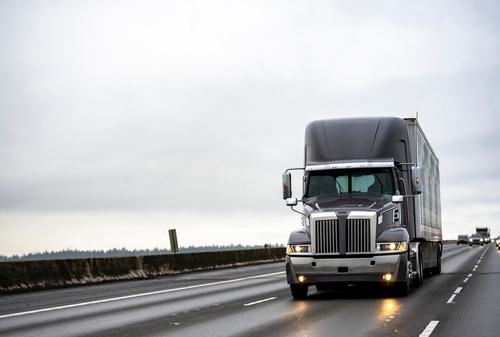
U.S. Sens. Maria Cantwell (D-WA), Chair of the Senate Committee on Commerce, Science and Transportation, and Roger Wicker (R-MS), ranking member of the committee, introduced legislation authorizing $78 billion for key infrastructure and safety priorities over the next five years.
The Surface Transportation Investment Act authorizes $36 billion for rail, $27.8 billion for multimodal grant programs, and $13 billion for safety programs.
“With the economy rebounding, it’s imperative that our long-delayed transportation needs are addressed,” Cantwell said. “Whether it’s moving people safely, delivering freight on time, or addressing environmental needs, this legislation is a down payment to thrive and compete in the innovation economy.”
As part of the multimodal and freight investments, the legislation would invest an average of $1.2 billion a year in the Nationally Significant Multimodal Freight grant program; $1.5 billion annually for the U.S. Department of Transportation’s BUILD/RAISE grant program; and $2 billion annually on projects of national significance. Additionally, the bill would authorize a new office of Multimodal Freight Infrastructure and Policy, update the National Freight Strategic Plan and improve coordination between federal and state governments on freight planning.
As part of the rail funding, the legislation would authorize over $25 billion for intercity rails over the course of five years while protecting Amtrak’s long-distance routes and providing funding to address the Northeast Corridor project’s backlog. The legislation would also invest $7.5 billion for rail safety and improvement projects, including a new $500 million per year grant program to eliminate grade crossings and increase funding in the Consolidated Rail and Infrastructure Safety Improvement grant program.
In terms of safety, the legislation authorizes the investment of $6 billion into the National Highway Traffic Safety Administration’s highway safety programs and invests $4.6 billion into the Federal Motor Carrier Safety Administration’s commercial vehicle programs. Another $500 million would be allocated to improve first responder planning and training for hazardous materials incidents.
“This bill continues the Commerce Committee’s strong history of working across the aisle to find solutions that benefit all Americans,” Wicker said. “The legislation will grow the economy by increasing authorized funding and making improvements to our rail, freight, ports, research, and safety programs.”